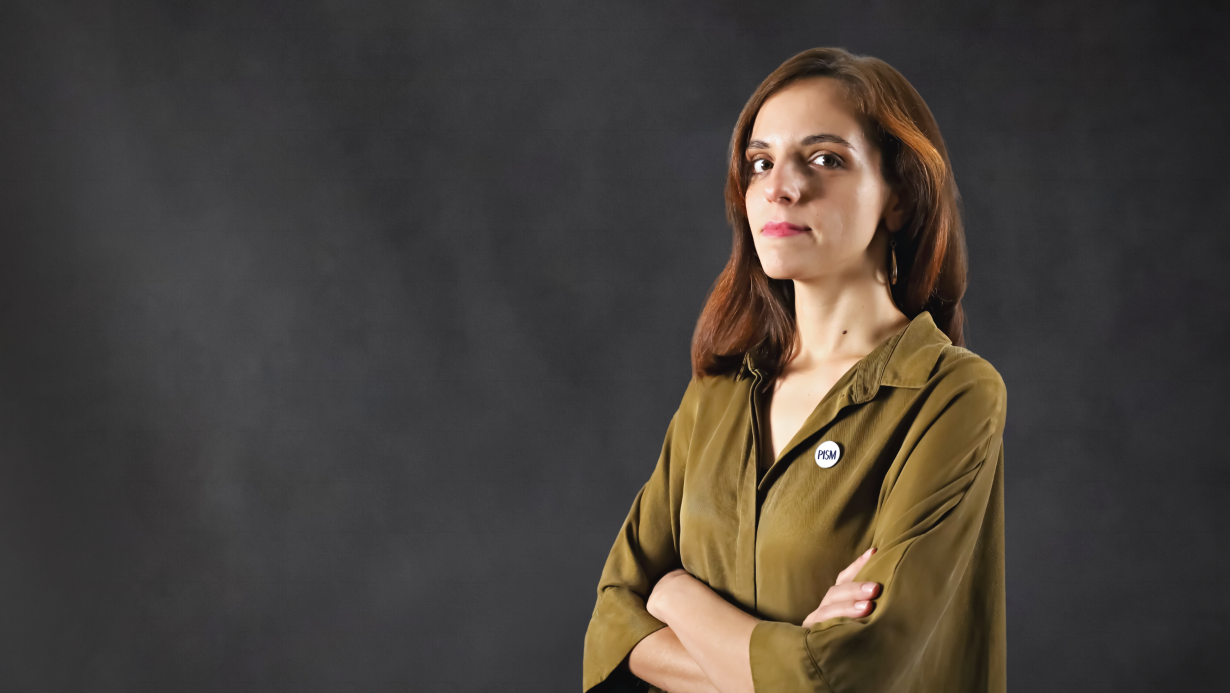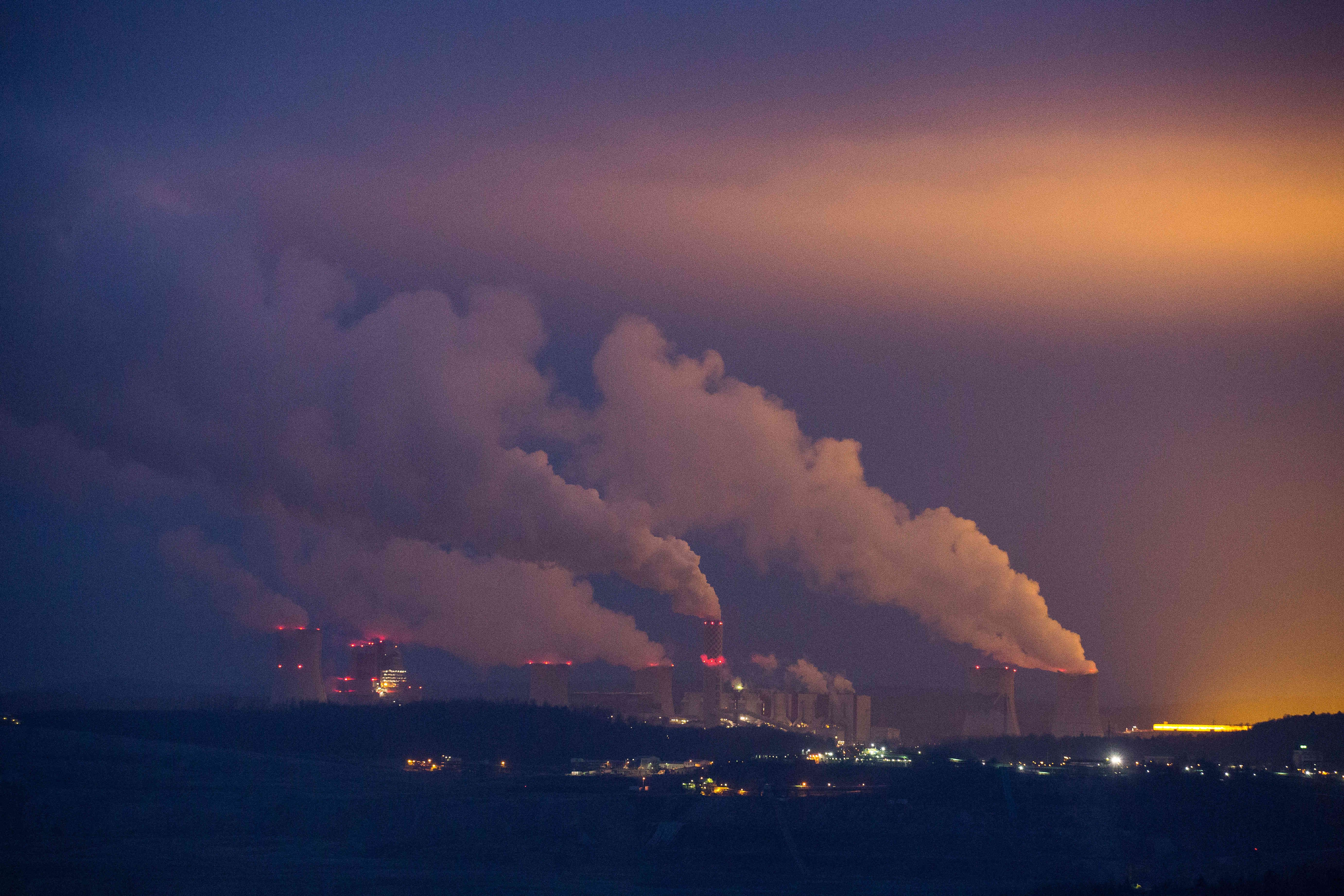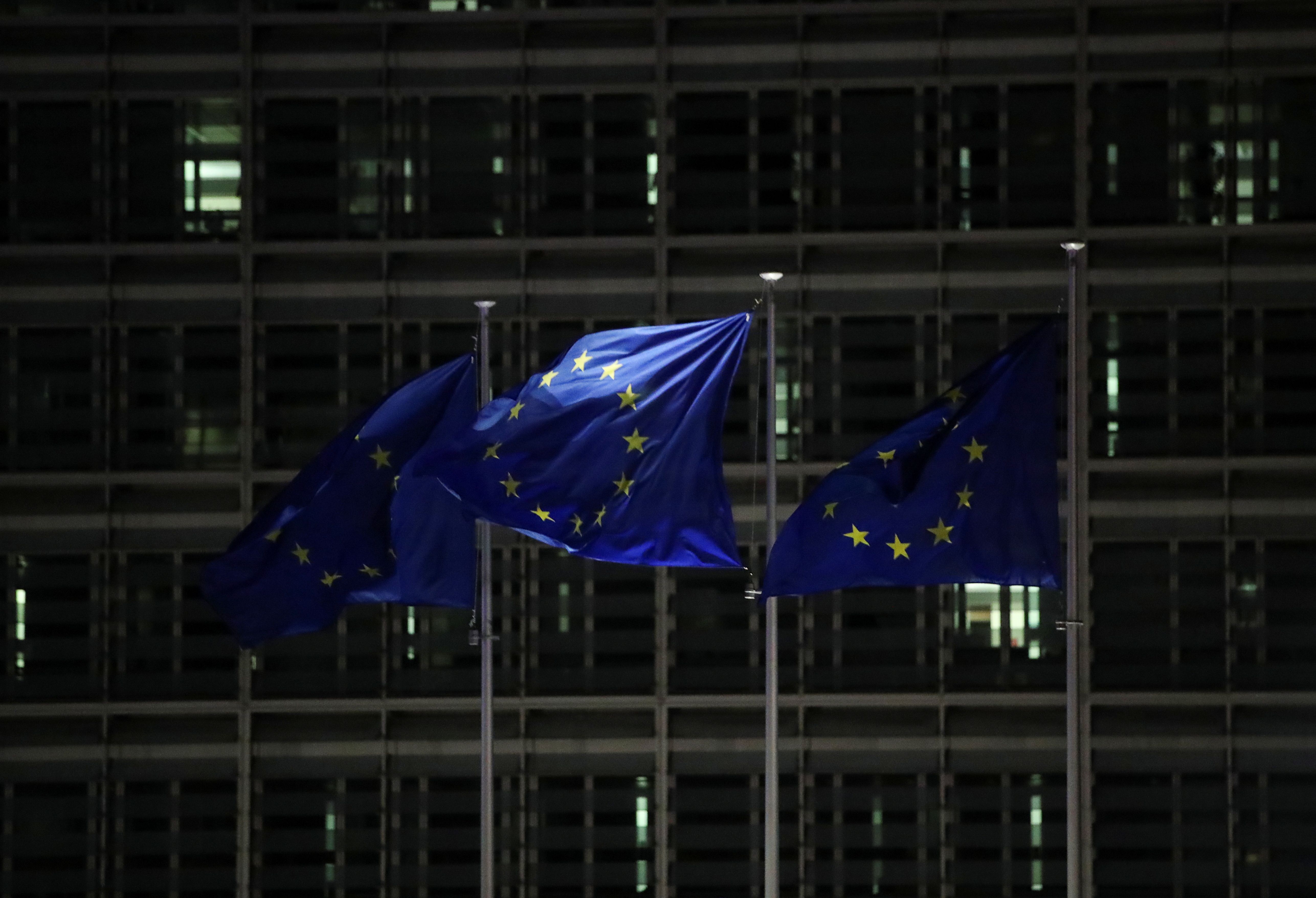The Road to Low-Carbon Economies in the EU's Arab Neighbourhood
At the end of last year, Mediterranean Arab states (i.e., Egypt and Algeria) announced investments or tenders related to the production of renewable energy sources (RES). This is related to the pressure to move away from fossil fuels and the favourable conditions in these countries to produce solar energy. Although in the short term the EU cooperation with its Arab neighbours on RES might slow due to the war in Ukraine, in the longer perspective, given their capacities in this regard, it remains crucial in order for the EU to become independent on Russian energy.
_sm.jpg) Ahmed Gomaa/ Zuma Press/ FORUM
Ahmed Gomaa/ Zuma Press/ FORUM
Conditions
Arab states have one of the highest renewable energy-generation capacities in the world, and their governments are striving to rapidly increase the share of renewable energy in electricity production. Although in 2015 the production of renewable energy (including hydropower) in the Arab world did not exceed 6% of the total generation capacity, between 2018 and 2019 in Egypt alone, the amount of electricity produced from solar energy increased by 169%, and the capacity of installed wind installations in 2020 was 148% higher than in 2011. This is due to the dynamic increase in electricity demand (e.g., in Egypt from 1990 to 2019 electricity consumption increased by 321%) due to the development of infrastructure, rapid population growth, and fluctuations in the price of fossil fuels. The potential for creating jobs and the ever-lower costs of building renewable energy installations are also important.
The EU’s Arab neighbours are in the so-called solar belt, the region with the greatest potential for obtaining energy from the sun. Egypt and Morocco are leaders in terms of installed concentrated solar power. Morocco also plans to develop the production of green hydrogen and become the main importer to Europe. Due to the dynamic development of renewable energy sources (the state is one of the global leaders in the energy transformation), Morocco has favourable conditions for the development of infrastructure enabling its acquisition for internal needs and exports. The high urbanisation rate and population density of Arab urban areas also indicate growing potential for energy production from biomass (organic waste).
At the same time, the share of RES in the energy mix of the EU’s Arab neighbourhood remains low. In Algeria, it is around 1%, in Lebanon 2%, and in Egypt 10%; Morocco and Jordan stand out with around 20%. Fossil fuels continue to play the dominant role in supplying the countries in the region with electricity. In 2019, gas and oil in Egypt accounted for about 78% and 12% of the energy mix, respectively, while in Tunisia and Algeria, the share of gas was almost 95% and 98%, respectively. However, the goals of the Arab states are ambitious—by 2030, 52% of the installed capacity in Morocco is to be renewable, in Jordan, 50%, and in Egypt, 42% by 2035.
Foreign Cooperation
Attracting foreign investors and developing cooperation at the regional level by means of tax relief and simplification of permit and regulation systems are among the key elements in the development of the renewable energy industry in the EU’s Arab neighbourhood. In 2013, members of the Arab League adopted the Pan-Arab Renewable Energy Strategy 2030. The document was the first example of political consensus among Arab governments on the long-term goals of renewable energy implementation in the region. The leaders committed to increasing installed RES capacity from 12 GW in 2013 to 80 GW in 2030. Achieving these goals involves not only infrastructure development but also institutional reforms. The importance of Arab investments (especially from the Persian Gulf countries) in the Middle East and North Africa region has increased. A company from the United Arab Emirates (UAE), AlNowais, will invest $1 billion in the development of two renewable energy power plants—solar and wind—in Egypt with a capacity of 500 MW. The UAE was also a party to the agreement from 2021 between Jordan and Israel in which the Emirates will be responsible for the construction of a solar power plant in Jordan from which energy will be converted into water from Israeli desalination plants. In turn, Saudi Arabia and Egypt plan to build a power line by 2024 to enable the exchange of electricity from renewable energy sources.
For the EU, its southern neighbourhood is an increasingly important area of investment in renewable energy, especially in light of the Russian invasion of Ukraine. Already in the years 2014-2020, nearly 79% of EU investments in the energy sector in the southern neighbourhood countries were connected to RES. Such investments are also listed as one of the priorities in the EU’s New agenda for the Mediterranean. In cooperation with the European Bank for Reconstruction and Development (EBRD), the EU provided €30 million in grants for green investment in Egypt in 2020, and in 2022, in cooperation with the United Nations for Industrial Development, €3.7 million to finance renewable energy projects in Lebanon. In the plan to end its energy dependence on Russia by 2030, published in March (REPowerEU), the EC indicated the priority for green hydrogen production and transport projects from the southern neighbourhood countries.
Individual EU countries also show an increased interest in cooperation with the southern neighbourhood in the field of renewable energy. Irish Fusion Fuel and Greek CCC are planning to build an ammonia plant worth $850 million powered by green hydrogen in Morocco. Germany, in turn, will support the Kingdom with €90 million for the construction of an industrial plant for green hydrogen and other climate-neutral fuels. Chinese investments are increasingly significant competition for European companies. In 2016, the state-owned company PowerChina inaugurated a photovoltaic power plant it built in Algeria, generating 233 MW of energy. In turn, in 2020, the Chinese Gezhouba group signed a three-year contract to build a 500 MW solar power plant in Egypt.
Risk Factors
Arab states are still dependent on fossil energy sources, having continued to develop infrastructure related to them, and other states are cooperating with them in this regard. At the end of 2021, Italian Eni and the Algerian state-owned company Sonatrach signed an agreement allowing Eni to increase the production of Algerian oil. In 2018, a consortium of two Chinese companies, Shanghai Electric and Dongfang Electric Cooperation, won a tender to build a 6 GW coal-fired power plant in Egypt. Due to Russia’s latest aggression towards Ukraine and the pressure to diversify energy supplies, the EU’s cooperation with its southern neighbours will also focus on gas and oil imports. REPowerEU recommends increasing gas imported to the EU from Egypt or Algeria. In accordance with the document, the EU also will focus on building energy independence and investments in renewable energy in the Member States.
Another challenge for the efficient development of the renewable energy industry is the shortage of an adequately qualified workforce. RES programmes at universities are either underdeveloped or difficult to access. Investments in RES must also keep up with the dynamic population growth, which results in energy demand in an environment where frequent, extremely high temperatures expose the power grid to overload.
The development of RES is also hampered by the constant instability, corruption, civil wars and outbreaks of social unrest leading to changes in government in the region of interest. These factors contribute to the failure of grid infrastructure and to unfair competition that discourages private investors.
Conclusions and Perspectives
While investments in green energy production are growing, in oil-exporting countries such as Algeria, they often remain a minor element of cooperation in the extraction of fossil fuels, as evidenced by the agreement between Sonatrach and Eni. This is the result of the policies of the countries in the region, which continue to treat the oil and gas industry as privileged.
Corruption and a privileged position on the market of groups close to the regimes also remain a problem. Therefore, the EU’s financial support for the development of renewable energy in the Arab neighbourhood should be complemented by pressure on the fight against corruption, political reforms, and making sure that these investments do not serve organisations that violate human rights.
Due to its efforts to diversify energy supply sources, the EU must not limit its gas and oil cooperation with Arab states. However, it could, together with its southern neighbours, develop a roadmap for EU investments in renewable energy that would allow Europe to gradually replace the import of fossil fuels with the import of green energy. Investments in renewable energy in the EU’s Arab neighbourhood are an important part of the Union’s energy and foreign policies. Their dynamics in the short term are threatened by the consequences of the war in Ukraine. The Russian aggression has made it a priority for the EU to fill the gaps in fossil fuel resources caused by the restrictions on supplies from Russia and to strive for energy independence. However, in the longer term, investments in renewable energy in the Mediterranean Arab states will remain necessary for the EU to become completely independent of energy imports from Russia.





